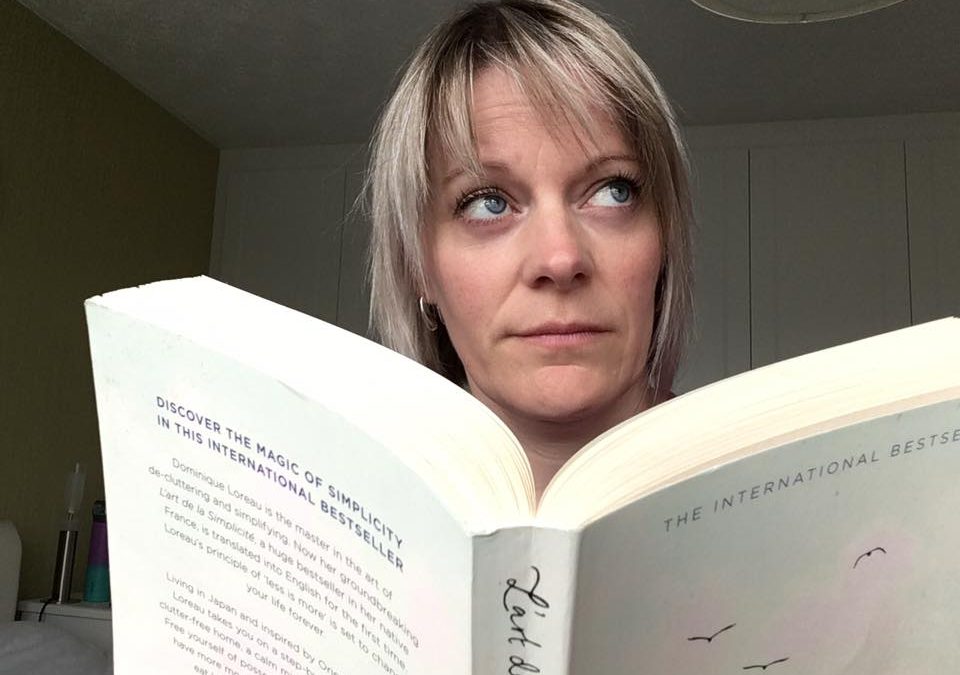Do you ever find yourself reading something then having to re-read it again because it’s not ‘gone in’?
Where are you when you’re reading the words but they’re going nowhere?
You’re lost in thoughts.
You’ve jumped on a thought train.
Your arms and hands are holding the book, your eyes are looking at the words and your mind is elsewhere.
Right at that moment in time, you’d like to be reading your book but your mind has other ideas.
This happened to me this morning. I re-read the page about three or four times. I was aware of not being present and tried really hard to concentrate on the words to make them ‘go in’ but I couldn’t do it.
On the third or fourth attempt I switched my concentration to the thought train(s) I was on jumping on. A phone call later today and planning for my parent talk on mindfulness next week.
BOOM!
I labelled the thought out loud and guess what? – I went on to read my page with total attention.
Labelling our thoughts and becoming a watcher of thoughts is a key part of mindfulness practice. It allows us to detach from thoughts and not live in them. In this example, my mindfulness practice helped me to get off the trains and back on to the platform.
When do you know you’re lost in thoughts? How often are your pupils doing the same? Do you (and they) even know it’s happening? How do you stop it?
If grown-ups can’t concentrate at times, then without doubt our children won’t always be able to either. This is why I teach grown-ups AND children AND teachers how to label thoughts and become aware of them – so we can concentrate on what we choose to.
Mindfulness practice isn’t just about feeling calm. It’s a great way to develop self-awareness so you and your pupils can improve their concentration and pay attention when it matters. Practising mindfulness isn’t wasting precious learning time – it’s time gained.
Asking children to concentrate isn’t enough.
Concentration needs to be practised.
Just like any other school subject.
Jo x
Get in touch today to chat about how I can help your school to develop a mindfulness practice that helps teachers, children and parents to be healthier and happier learners. Email jo@learnful.co.uk

